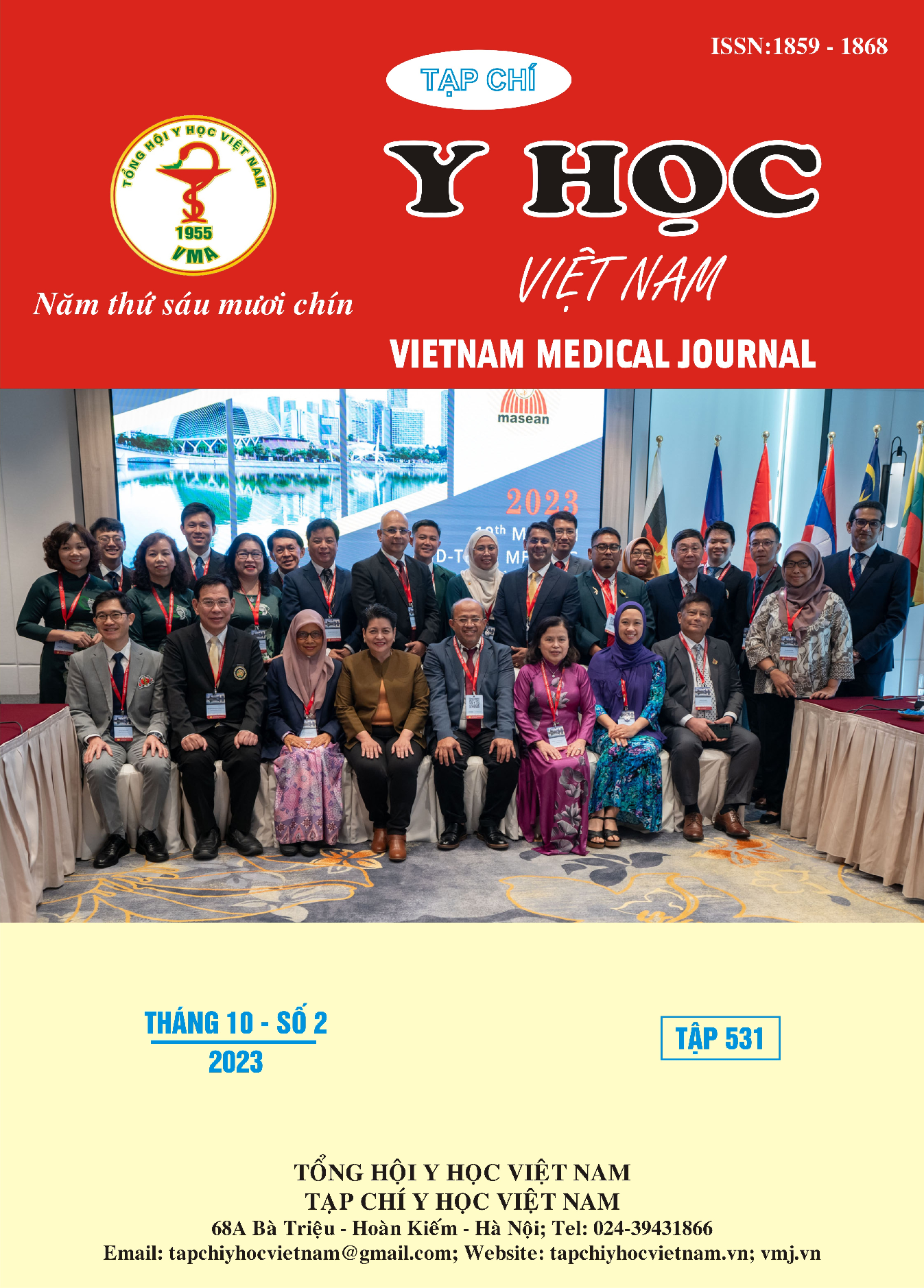DIFFICULTIES OF DOCTORS IN THE PROCESS OF EXAMINING AND MANAGING ASTHMATIC PATIENTS AND THE NEED FOR USING THE ASTHMA SELF-CONTROL PATIENT SUPPORT APPLICATION
Main Article Content
Abstract
A qualitative research to find out the difficulties of doctors in the process of examining and managing asthma patients and the need to use a help application using In-depth Interview and Group Discussion methods based on a semi-structured questionnaire in April 2023 at the Asthma-COPD Clinic, University Medical Center, Ho Chi Minh City. The results showed that the difficulties in the examination and management of asthma patients mainly stem from the patients’ failure to remember the frequency of their symptoms in the past month, non-adherence to treatment, incorrect medication use, and difficulty in contacting or following the patient self-management of asthma at home even though the doctors had instructed the patients to control their asthma by themselves as well as the influence of the living environment. around an acute asthma attack and how to manage an acute asthma attack. Doctors believed that building an application to help doctors follow and manage patients, as well as help patients better control asthma at home was really necessary. The proposed functions included “acute asthma warning”, “environmental alert”, “medication reminder”, and “patient information” and should have a cost appropriate to the patient's economic condition.
Article Details
Keywords
Asthma management, Self-control; mobile phone application
References
2. Katwa U, et al. Asthma Management in the Era of Smart-Medicine: Devices, Gadgets, Apps and Telemedicine. The Indian Journal of Pediatrics. 2018;85(9):757-62.
3. Bousquet J, et al. Treatment of allergic rhinitis using mobile technology with real-world data: The MASK observational pilot study. Allergy. 2018;73(9):1763-74.
4. Lai CK, et al. Asthma control in the Asia-Pacific region: the Asthma Insights and Reality in Asia-Pacific Study. J Allergy Clin Immunol. 2003; 111(2):263-8.
5. Nguyen VN, et al. Knowledge on self-management and levels of asthma control among adult patients in Ho Chi Minh City, Vietnam. International journal of general medicine. 2018:81-9.
6. Xiao Q, et al. Effectiveness of mHealth Interventions for Asthma Self-Management: A Systematic Review and Meta-Analysis. Stud Health Technol Inform. 2018;250:144-5.
7. Miles C, et al. Barriers and facilitators of effective self-management in asthma: systematic review and thematic synthesis of patient and healthcare professional views. npj Primary Care Respiratory Medicine. 2017;27(1):57.
8. Parikh K, et al. Barriers and Facilitators to Asthma Care After Hospitalization as Reported by Caregivers, Health Providers, and School Nurses. Hosp Pediatr. 2018;8(11):706-17.


